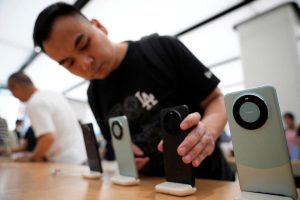COVID-19 Cozy: How Church’s Chicken Got Closer To Consumers
Church’s Chicken this week launched a social scavenger hunt where guests solved riddles to win prizes. The contest gave participants a chance to win a variety of camping gear, encouraging them to get outside and play.
The fast-food restaurant gave away more than 20 prizes during this two-hour campaign and received nearly 3,500 impressions and more than 700 comments. This effort was strictly through social media and the team teased it on Instagram, Facebook, and Twitter. The teaser posts began on Monday and the effort was launched on Facebook two days later.
Finding ways to get closer to consumers to determine what they need is nothing new, but this fast-food restaurant found a way to take a digital-first approach offline and online — aimed at getting customers who were willing to give up personal information and share a little bit about themselves.
No doubt its recent Facebook campaign will give it additional customer insights to improve the guest experience and drive loyalty, adding to its recent extended agreement with Service Management Group, which collects feedback from consumers at the point of sale.
Church’s certainly has held its own during the COVID-19 pandemic by taking a digital-first approach. Digital ordering for the brand increased by 80% since the launch of COVID-19, with some restaurants driving more than $7,000 in weekly sales through digital ordering alone, the company reported.
Drive-Thru and delivery meal deals such as the $20 Family Meals and Free Handheld Chicken Pot Pies with every Family Meal purchase helped. They were launched in the early phase of COVID-19.
The shift in sales to Church’s family meals, primarily from restaurant Drive-Thru, increased between 15% and 20% during the first two months of the pandemic.
This week, Church’s tried another digital strategy.
The company highlighted its Smokehouse season with the Camp Smokehouse Finders Keepers contes, which featured a digital 360° Facebook video of a backyard campsite and instructed visitors to the post to search to find answers to each question or riddle. Participants typed in the answer and took a screenshot of the video with the correct answer.
The official rules included an additional notice for California residents outlining the state’s consumer privacy act, CCPA, which has become the new norm for all these types of contests and campaigns.
Since the contest requires the collection of personal data from consumers, the campaign gives California residents the right to opt out of the sale of personal information.
Participants were required to have a Facebook account and use Facebook Messenger to complete the tasks.
Church’s offered 25 prizes — a total value of $4,000, including tent, hammock, fire pit, camping chairs, picnic table, cooler, and video projector with screen.
(40)







